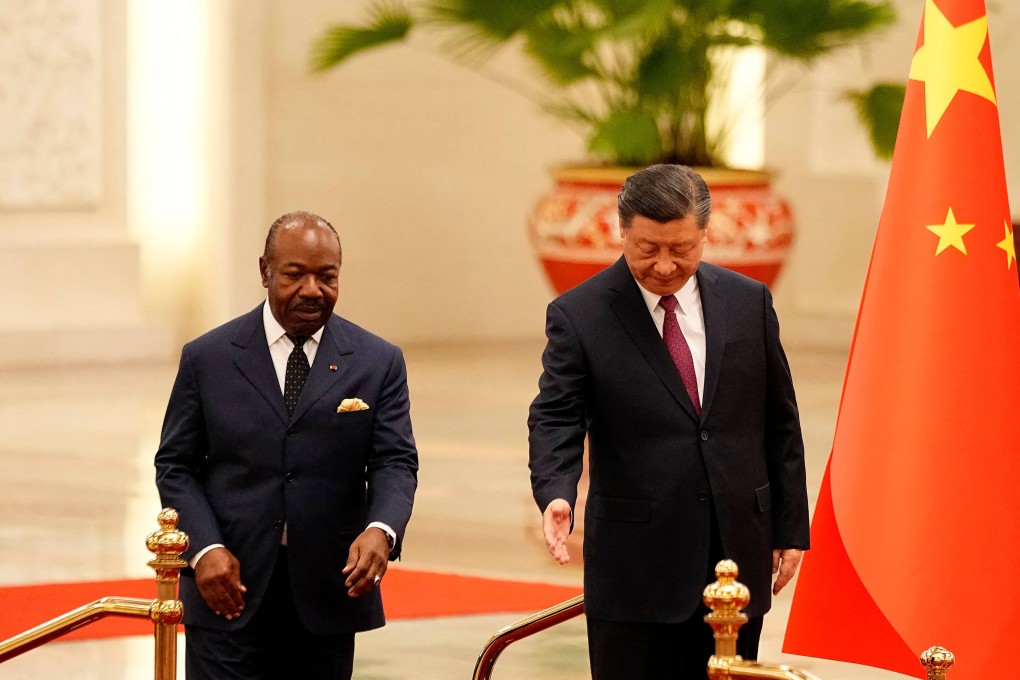Advertisement
China to help oil-dependent Gabon shift economic gears to greener industry
- President Xi Jinping hails comprehensive strategic cooperation partnership, Beijing’s highest level of bilateral relations
- Agreements include investment for economic diversification, climate change
Reading Time:4 minutes
Why you can trust SCMP

China will help Gabon to diversify its oil-dependent economy and build a green “belt and road” strategy to make the Central African nation a model for cooperation in addressing climate change.
The announcement by Chinese President Xi Jinping on Wednesday came after he met Gabon’s visiting president, Ali Bongo Ondimba, at the Great Hall of the People in Beijing.
Under the agreement, China will help build key infrastructure and encourage Chinese investment in Gabon’s forestry, fishery, digital economy and industrial estates.
Advertisement
China will “support Gabon in realising economic diversification and industrial upgrading”, Xi said as the two countries agreed to upgrade relations to a comprehensive strategic cooperative partnership – the highest level of bilateral relations for China.
“China is willing to work with Gabon to promote the steady and long-term development of the China-Gabon comprehensive strategic cooperative partnership,” Xi added.
Advertisement
A joint statement released after the meeting said China and Gabon agreed to increase the level of bilateral trade.
“China will actively study the possibility of more Gabonese products entering the Chinese market,” the joint statement said.
Advertisement
Select Voice
Choose your listening speed
Get through articles 2x faster
1.25x
250 WPM
Slow
Average
Fast
1.25x